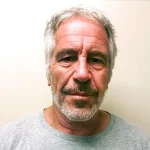
The U.S. Supreme has issued a flurry of momentous decisions this term, but one ruling risks slipping through the media cracks, and it is an important one for the nation’s police.
Every TV viewer is familiar with fictional crooks being read their Miranda rights on their favorite cop show.
“You have the right to remain silent, anything you say can be held against you in a court of law,” are words we’ve grown up hearing on TV.
But these rights are not just fodder for TV serials.
Reading suspects the Miranda warning has been a requirement for policemen since the U.S. Supreme Court ruled in 1966 that suspects had to be informed of their rights to keep them from incriminating themselves after being arrested.
Nothing has changd about that, but on Thursday, the nation’s highest court issued a 6-3 ruling that in part ruled that suspects cannot sue the police if they were not read their Miranda Rights, Detroit’s WXYZ reported.
In Thursday’s Vega v. Tekoh ruling, the court sided with a sheriff’s deputy at the center of a lawsuit filed by a Los Angeles hospital worker who sued saying that he had not been read his rights when he was arrested.
Leading the majority, Justice Samuel Alito stated in his opinion that “a violation of Miranda is not itself a violation of the Fifth Amendment,” and added “we see no justification for expanding Miranda to confer a right to sue” under Section 1983.
“Miranda did not hold that a violation of the rules it established necessarily constitute a Fifth Amendment violation, and it is difficult to see how it could have held otherwise,” Alito wrote.
Did the court make the right decision in this case?
Yes: 100% (37 Votes)
No: 0% (0 Votes)
“For one thing, it is easy to imagine many situations in which an un-Mirandized suspect in custody may make self-incriminating statements without any hint of compulsion.”
“In addition,” Alito added, “the warnings that the Court required included components, such as notification of the right to have retained or appointed counsel present during questioning, that do not concern self-incrimination per se but are instead plainly designed to safeguard that right. And the same is true of Miranda’s detailed rules about the waiver of the right to remain silent and the right to an attorney.”
The decision reversed a lower court’s rule in favor of the hospital worker and remanded the case back to the lower court to revisit.
The dissent was written by Justice Elena Kagan who claimed that the ruling might make it harder for suspects to pursue legal remedies if they feel their rights were violated during an arrest and interrogation.
“The majority observes that defendants may still seek ‘the suppression at trial of statements obtained’ in violation of Miranda’s procedures. … But sometimes, such a statement will not be suppressed,” Kagan wrote.
“And sometimes, as a result, a defendant will be wrongly convicted and spend years in prison,” Kagan continued. “He may succeed, on appeal or in habeas, in getting the conviction reversed. But then, what remedy does he have for all the harm he has suffered? The point of §1983 is to provide such redress — because a remedy ‘is a vital component of any scheme for vindicating cherished constitutional guarantees.’”
“The majority here, as elsewhere, injures the right by denying the remedy,” she concluded.
Despite the dissent, it seems clear that the ruling upholds the rights of suspects without unduly putting police — and their investigations — in jeopardy of being illicitly scuttled by those who would abuse the very protections we all have.






